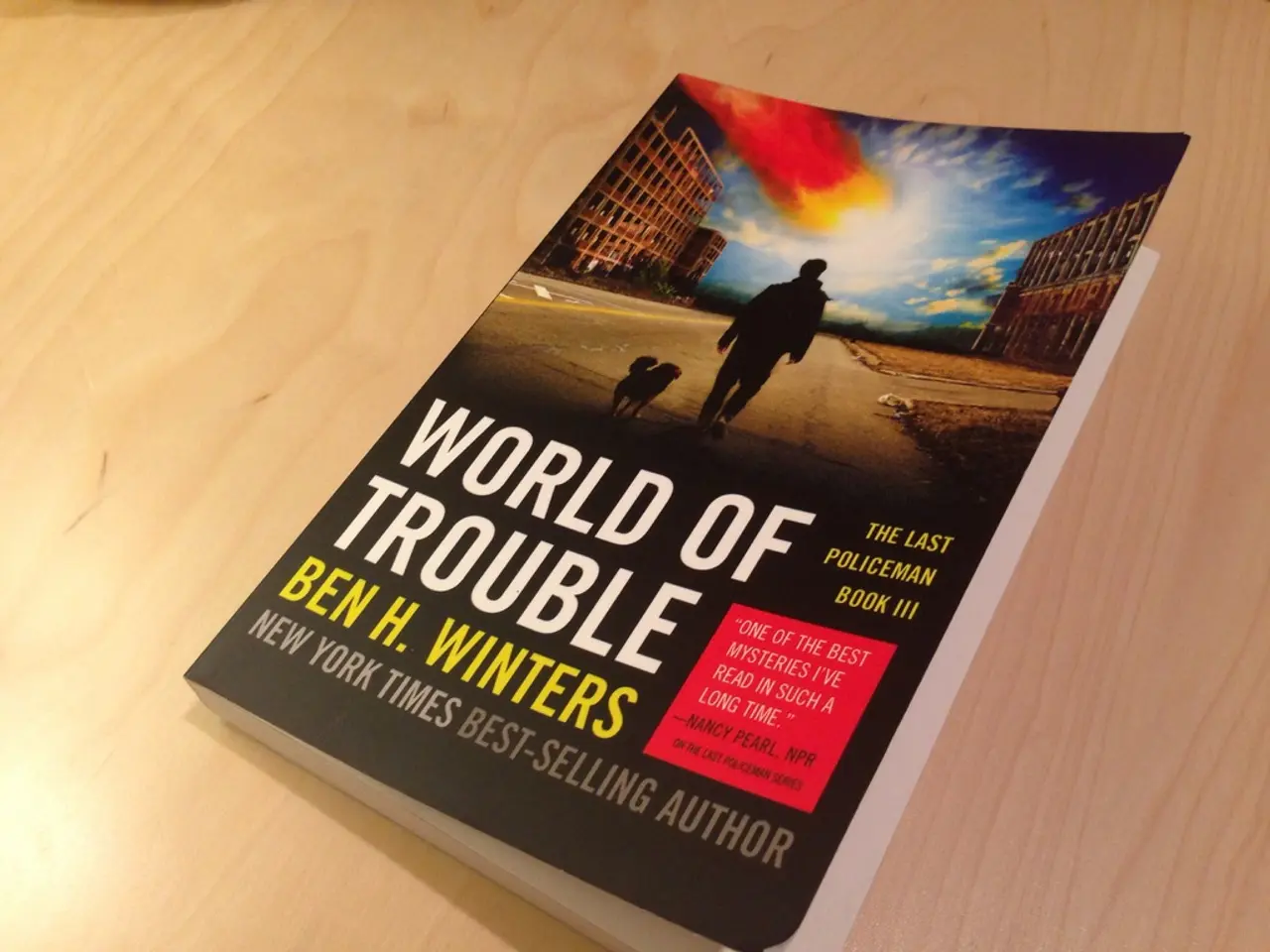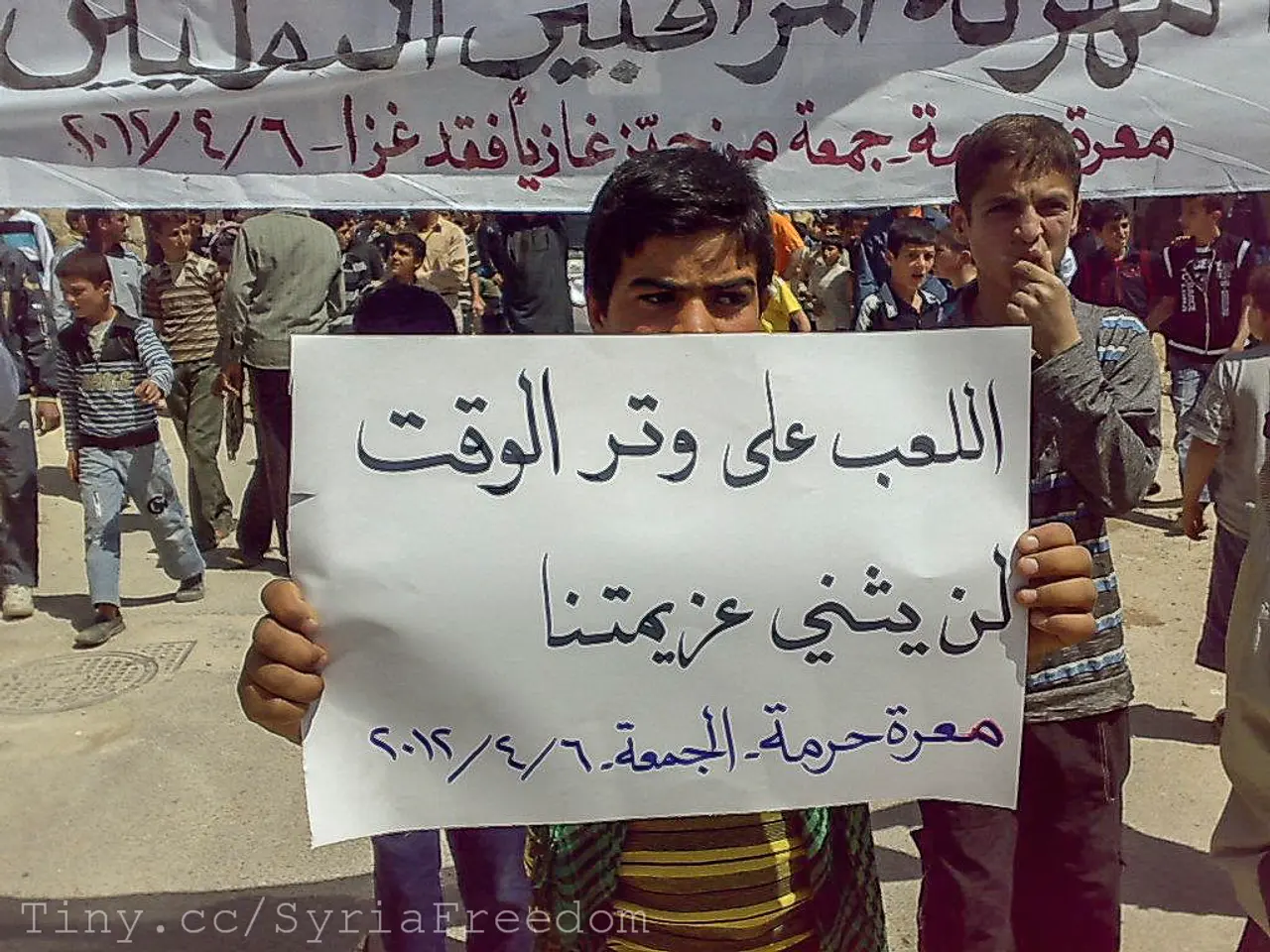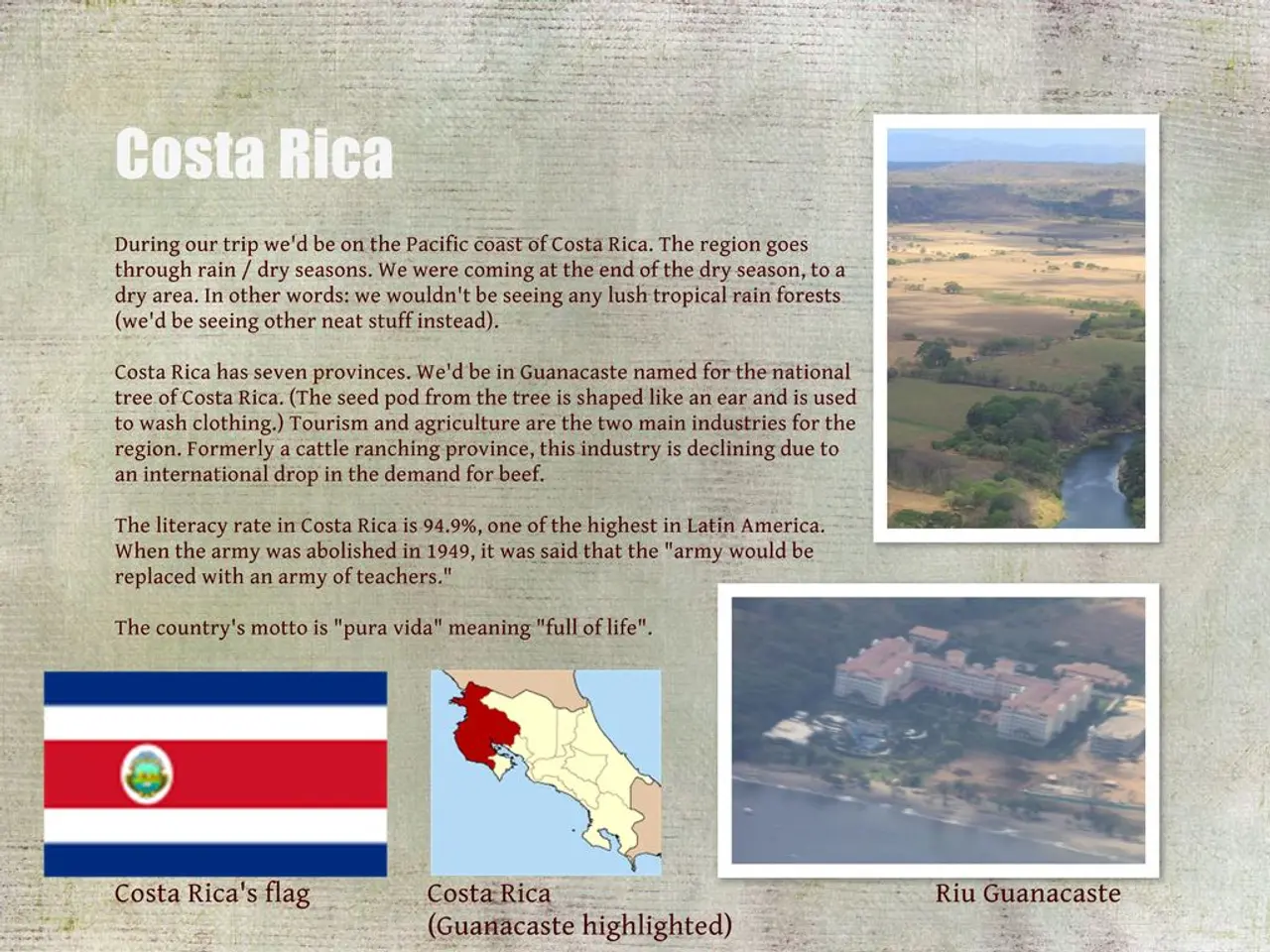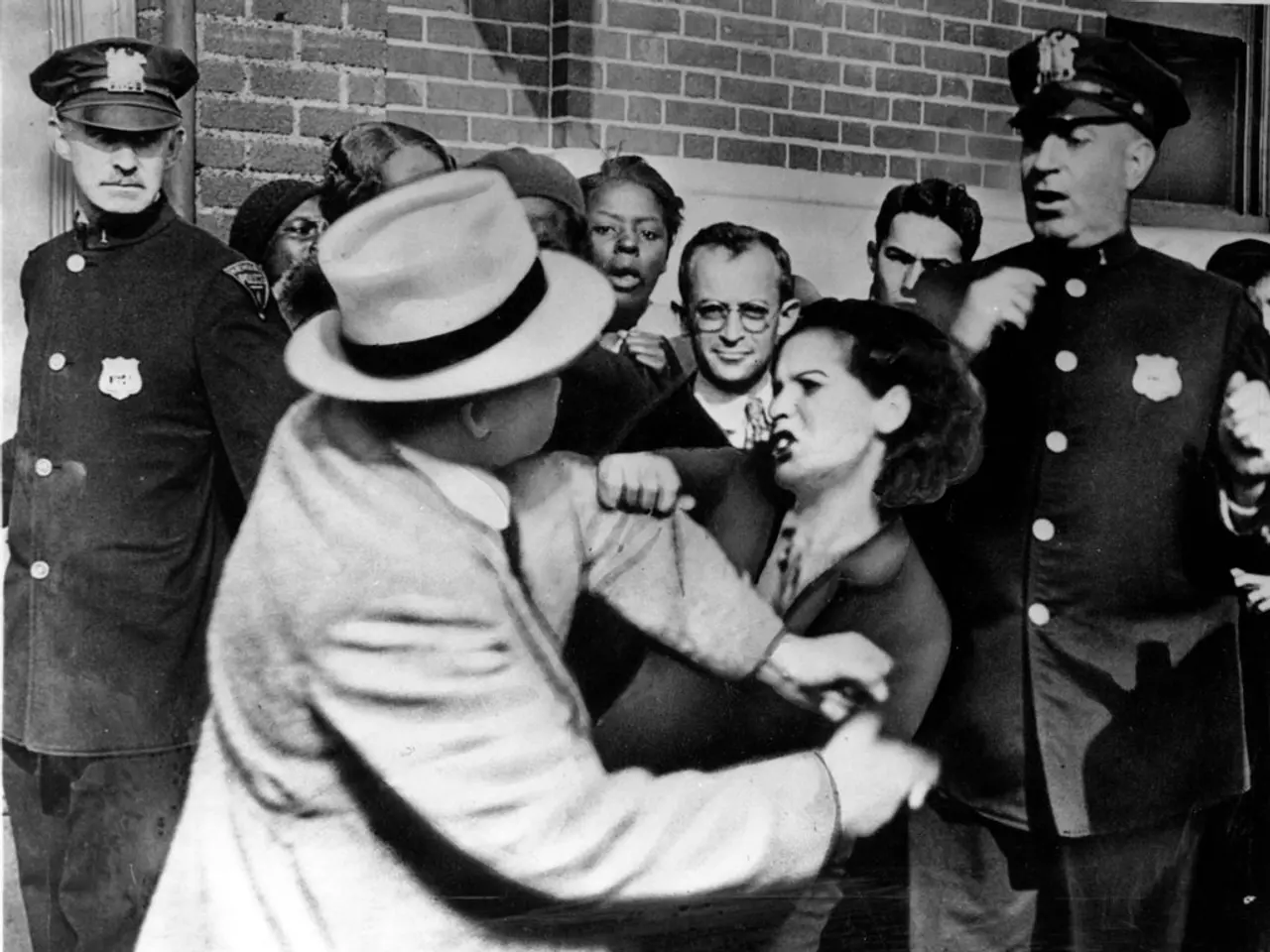U.S. concludes removal of 8 individuals to South Sudan following protracted legal disputes
The recent deportation of eight immigrants from the United States to South Sudan has ignited a storm of controversy, raising questions about due process, human rights, and international relations.
**Background:** Eight men, each with serious criminal convictions in the U.S., faced multiple legal battles aimed at halting their removal to South Sudan. The men, originally from Cuba, Laos, Mexico, Myanmar, Vietnam, and South Sudan, were deported in May, but their deportation was temporarily blocked due to concerns about their lack of prior notice and opportunity to object, as well as the instability and risks to personal safety in South Sudan[2][3]. However, the U.S. Supreme Court ultimately allowed the deportations to proceed, overruling these challenges[4].
**Legal Challenges:** The core legal contention revolves around the potential for the deportations to constitute additional punitive punishment after the men have served their criminal sentences in the U.S. Lawyers representing the men argued that the deportations were designed to punish beyond the legal sentence served, potentially violating constitutional protections against cruel and unusual punishment[2]. A federal judge voiced serious concerns about sending individuals to a country where their safety could be at risk[2].
The U.S. government defended its actions by emphasizing national security and foreign policy prerogatives, asserting that judicial decisions cannot override these executive branch responsibilities[1].
**Human Rights and Safety Concerns:** Human rights advocates have raised alarms that these deportees could face imprisonment, torture, or other abuses in South Sudan. While the U.S. government has claimed South Sudanese officials provided assurances that the men would not be tortured and would receive temporary immigration status, details about their treatment upon arrival remain unclear[1][2].
**Implications:** - The deportations reflect a hardline U.S. immigration enforcement stance, reflecting efforts by the Trump administration to pressure countries, regardless of human rights records, to accept deportees. - Legal precedents about due process and protection from additional punishment upon deportation are being tested, revealing tensions between judicial protections for immigrants and executive branch immigration and foreign policy authority. - The situation highlights broader international human rights concerns, particularly in cases where deportees are sent to countries with unstable governance and ongoing conflict. - The decision to send individuals to South Sudan, despite its travel warnings and reported risks, may raise further scrutiny domestically and internationally regarding U.S. compliance with refugee and human rights norms.
During the legal battles, the men were held under guard at a military base in Djibouti for weeks[5]. The men arrived in South Sudan on Friday after a federal judge cleared the way for their relocation[6]. The flight was detoured after a federal judge found the administration had violated his order by failing to allow the men a chance to challenge the removal[7]. A temporary hold on the deportations was issued following court hearings on Independence Day[8].
The Trump administration intended for these men to be relocated to war-torn South Sudan[9]. Authorities have reached agreements with other countries to house immigrants if authorities cannot quickly send them back to their homelands[10]. The State Department advises against travel to South Sudan due to crime, kidnapping, and armed conflict[1][2].
References: [1] Associated Press. (2021, July 2). US deports 8 immigrants to South Sudan despite warnings. AP NEWS. https://apnews.com/article/immigration-donald-trump-south-sudan-united-states-human-rights-7d32d1c5c0d1231c5f596b2b8d8c583b
[2] Apuzzo, M. (2021, July 2). Federal judge clears way for U.S. to deport eight immigrants to South Sudan. The Washington Post. https://www.washingtonpost.com/us-policy/2021/07/02/federal-judge-clears-way-us-to-deport-eight-immigrants-to-south-sudan/
[3] Ganley, E. (2021, July 2). U.S. deporting eight immigrants to South Sudan despite State Department warnings. Reuters. https://www.reuters.com/world/us/us-deporting-eight-immigrants-south-sudan-despite-state-department-warnings-2021-07-02/
[4] Snyder, R. (2021, June 29). Supreme Court lets stand Trump administration policy on deportations. The New York Times. https://www.nytimes.com/2021/06/29/us/politics/supreme-court-trump-deportations.html
[5] Snyder, R. (2021, July 2). U.S. deports eight immigrants to South Sudan despite warnings. The New York Times. https://www.nytimes.com/2021/07/02/us/politics/us-deports-eight-immigrants-to-south-sudan.html
[6] Associated Press. (2021, July 2). US deports 8 immigrants to South Sudan despite warnings. AP NEWS. https://apnews.com/article/immigration-donald-trump-south-sudan-united-states-human-rights-7d32d1c5c0d1231c5f596b2b8d8c583b
[7] Apuzzo, M. (2021, July 2). Federal judge clears way for U.S. to deport eight immigrants to South Sudan. The Washington Post. https://www.washingtonpost.com/us-policy/2021/07/02/federal-judge-clears-way-us-to-deport-eight-immigrants-to-south-sudan/
[8] Ganley, E. (2021, July 2). U.S. deporting eight immigrants to South Sudan despite State Department warnings. Reuters. https://www.reuters.com/world/us/us-deporting-eight-immigrants-south-sudan-despite-state-department-warnings-2021-07-02/
[9] Snyder, R. (2021, July 2). U.S. deports eight immigrants to South Sudan despite warnings. The New York Times. https://www.nytimes.com/2021/07/02/us/politics/us-deports-eight-immigrants-to-south-sudan.html
[10] Snyder, R. (2021, July 2). U.S. deports eight immigrants to South Sudan despite warnings. The New York Times. https://www.nytimes.com/2021/07/02/us/politics/us-deports-eight-immigrants-to-south-sudan.html
- The controversy surrounding the recent deportation of eight immigrants from the United States to South Sudan has caused a stir in the realm of politics, particularly regarding due process and human rights, raising questions about international relations and general news.
- The deportation of these individuals to a conflict-ridden country like South Sudan, despite warnings about crime and armed conflicts from the State Department, has led to discussions in areas such as war-and-conflicts, crime-and-justice, and human rights.








